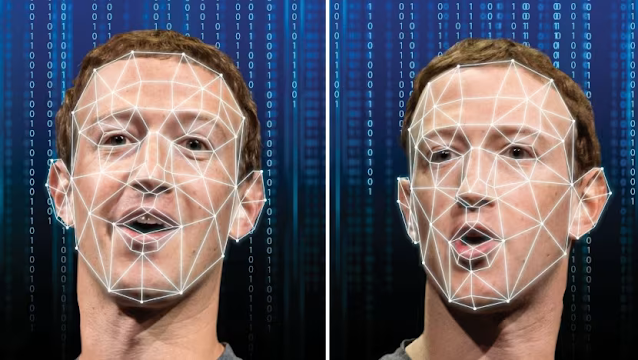COMMENTARY: Protecting SG From 'Deepfake' Threat
In the rapidly evolving technology landscape, fraud using 'deepfake' technology is now emerging as an increasingly worrying challenge in Singapore.
SINGAPORE: In the rapidly developing technology landscape, fraud using 'deepfake' technology is now emerging as an increasingly worrying challenge in Singapore.
This intricately crafted manipulation of audio and video content uses Artificial Intelligence (AI) to create simulations of real individuals so convincing that it raises concerns about the abuse of this technology.
Recent incidents involving 'deepfakes', including those targeting Prime Minister Lee Hsien Loong and other prominent politicians, highlight how important it is to address this issue. As fraud and forgery like this continue to increase, it will pose a serious and serious threat to the integrity and validity of information, thus increasing the spread of misinformation, propaganda and cyber threats in Singapore. This commentary explores the 'deepfake' phenomenon and its implications for cyber security defenses and strategies to address its impact in the context of Singapore.
WHAT IS A 'DEEPFAKE'?
'Deepfake' is created through learning algorithms that analyze and mimic patterns in data to manipulate facial expressions, tone of voice and body movements to generate highly realistic simulations of individuals.
The manipulation that can be done so easily raises concerns about its misuse because such forgery can be used as a weapon for various purposes, including spreading false information, damaging reputation and influencing public opinion as witnessed in Singapore recently through the incident involving Prime Minister Lee Hsien Loong and and several other politicians.
IMPLICATIONS & EFFECTS OF 'DEEPFAKE'
1. Misinformation and Manipulation:
Recent incidents in Singapore involving 'deepfakes', particularly those targeting Prime Minister Lee Hsien Loong and other influential figures, could trigger the risk of spreading misinformation on an unprecedented scale.
These convincing simulations can manipulate public opinion and influence political narratives. Therefore, an effective strategy is needed to overcome its effects.
2. Privacy Concerns:
Incidents involving forgery and 'deepfake' scams in Singapore have raised concerns over privacy issues as individuals, including political figures, may find themselves unwittingly exposed to manipulated content that could endanger their personal and professional lives.
3. Cyber Threats:
The use of 'deepfake' technology in cyber attacks has become more prominent in Singapore, further complicating efforts to distinguish between genuine and manipulated content. This leads to confusion, mistrust, and the potential for financial loss, which will directly impact Singaporeans.
THE RISKS CAUSED BY 'DEEPFAKE'
The application of this malicious technology goes beyond political manipulation as actors exploit this technology to commit fraud and promote unsupported, even illegal, products and services.
These individuals take advantage of human emotions, especially greed and the allure of get-rich-quick schemes to deceive victims.
To increase the credibility of their efforts, these malicious actors often use or feature famous celebrities or political figures in their fake content.
By taking advantage of the trust associated with these prominent personalities, they try to dispel the doubts of their victims by making their scam campaigns more convincing just to fool their victims.
ADDRESSING THE GROWING THREATS IN SINGAPORE
1. Detection Technology
In response to the growing threat of fraud in Singapore, there is an urgent need to improve and implement detection technology. An AI-powered tool that analyzes content to detect any oddities or anomalies and patterns that indicate manipulation, especially given recent incidents involving high-profile political figures.
2. Literacy and Media Education
Public education in Singapore about the existence and potential impact of fraud is now more critical than ever. Recent incidents involving political figures highlight the importance of developing digital literacy skills, empowering individuals to distinguish between genuine and manipulated content.
3. Regulations and Legislation
The recent 'deepfake' fraud incident involving political figures in Singapore highlights how to draft and enact clear rules and legislation. Cooperation between governments and the technology industry is essential to tackle the creation and spread of false information, with measures including penalties as well as incentives to develop and adopt detection technologies.
4. Content Transparency
The latest incident involving a 'deepfake' scam in Singapore has highlighted the need for increased transparency on content creation on platforms that host user-generated content. Features that indicate whether a video or audio clip has been manipulated can help users make informed decisions about the content they consume.
5. Digital 'Watermarking'
The recent 'deepfake' fraud incident involving leading political figures in Singapore emphasizes the importance of implementing 'watermarking' technology. This technology can identify genuine content, making it more challenging and difficult for fraudsters to create convincing fakes and providing adequate protection for high-profile individuals.
ADVICE FOR SINGAPORE PEOPLE
As citizens who need to be vigilant, there are some proactive steps that can be taken to reduce the risk posed by 'deepfake' fraud.
First, cultivate the habit of digital literacy by always following the latest developments on 'deepfake' scams and other scams. Be critical of online content, especially if it seems sensational or too controversial.
Verify information from multiple trusted sources before trusting or sharing it. Also, pay attention to minor details, such as inconsistent lighting or unnatural facial expressions, that may indicate manipulation. Use tools and applications designed to detect 'deepfake' fraud as such fraud will become increasingly complex.
Finally, report suspicious content to relevant authorities or platforms to contribute to the collective effort in upholding digital integrity.
GOVERNMENT INITIATIVES & SUPPORT
In line with people's awareness, Singapore's government agencies can play an important role in combating 'deepfakes' and new scams.
Establishing a special task force or collaborating with technology experts can help Singapore to develop state-of-the-art detection technology. Allocating resources to raise public awareness and implement effective public education programs will empower Singaporeans to identify and combat the threat of online fraud. Further tightening of regulations and laws to prevent the creation and spread of malicious fake content online should be the number one priority.
In addition, establishing international cooperation to share expertise and best practices can increase Singapore's resilience against 'deepfake' challenges at the global level.
By taking a multi-pronged approach, combining technology descriptions, improving public education and implementing regulatory measures, government agencies can significantly contribute to efforts to protect Singapore's digital landscape.




















No comments